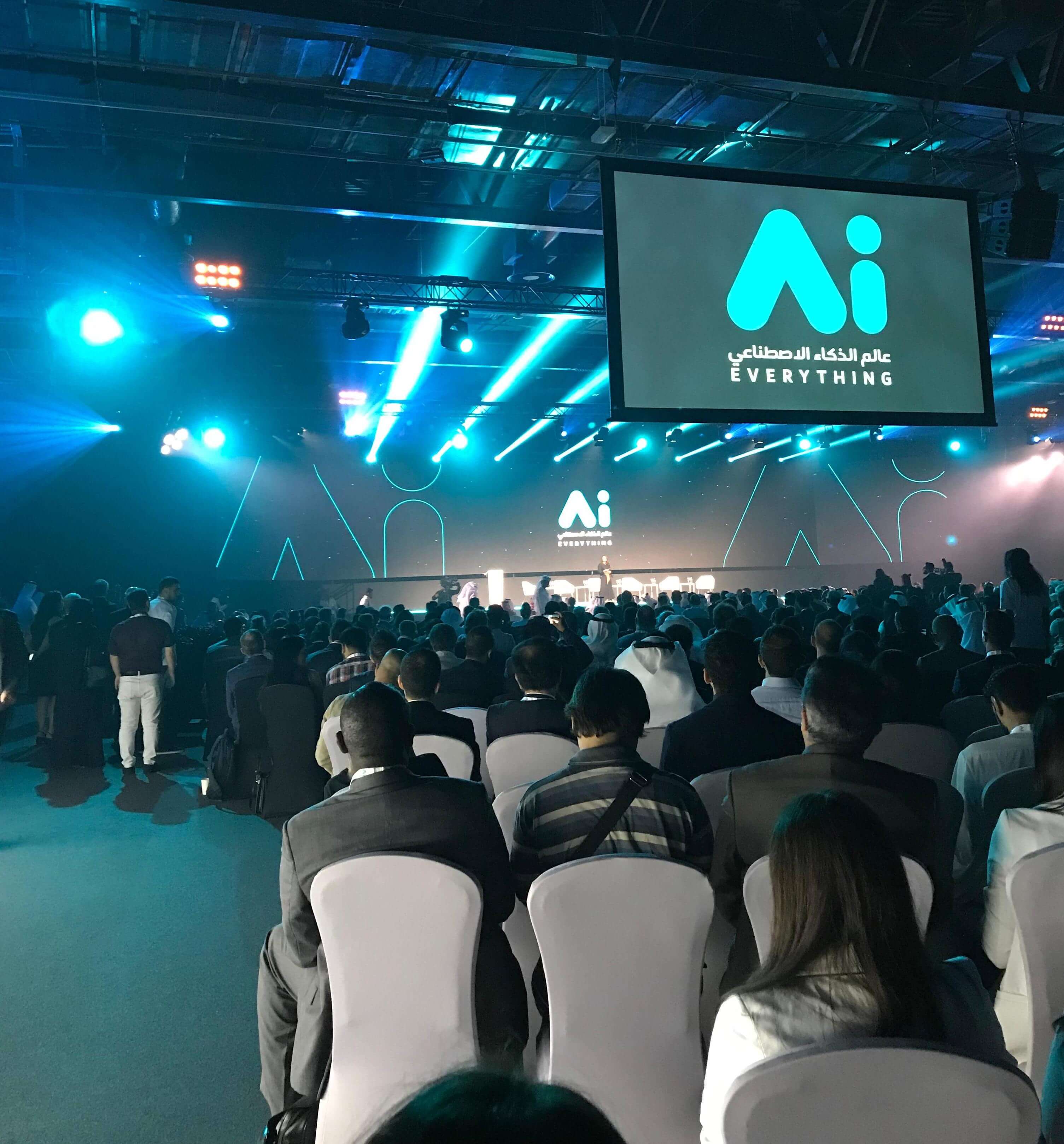Last month, I had the opportunity to attend the Ai Everything Summit for 2019 in Dubai. While there, I got to hear from experts across the industry, learning the amazing ways their artificial intelligence (AI) is being utilized and connect with contacts beyond our industry, to discuss Clarifai’s advancements and potential use-cases for computer vision. Overall, it was a great experience, and I look forward to integrating some of what I learned here with the Clarifai team.

How industries are using AI
One thing I really valued was having the chance to learn more about the technologies of other computer vision providers. One company, for instance, developed a solution for X-Ray analysis, while another was seeing a lot of traction with casinos for facial recognition. I also saw the launch of a Middle East-based provider whose API would allow companies to access their damage assessment model for insurance purposes (that use-case reminded me of one of our own customers that uses our image recognition technology to assess the value of real estate investments.)
Here at Clarifai, we are known for the customers that use our technology to filter out inappropriate content, label and categorize photos using even the most industry-specific concepts, among other things, but we continue to branch out. For instance, with our IoT SDK now in beta, our recent technical alliance with Boulder AI will see us combining our cutting edge visual recognition capabilities with their highly durable, low power, machine-learning camera platform.
Other partnerships, like ours with Skyline Software Systems Inc., one of the leading developers of 3D geospatial visualization products, will see our technology being incorporated into their 3D earth visualization software. This, in turn, can be used for urban planning, monitoring construction, disaster relief measures, and land use classification.
Overall, we know AI continues to impact the world in a big way. Aside from these awesome applications of AI, however, there were two other things that stuck out for me at the summit: the potential financial gains for companies and countries alike and the need to develop AI responsibly.
AI and the Global Economy
In the first keynote, the presenter referred to a study released by PwC, where they concluded that AI will contribute US$15.7 trillion to the global economy by 2030. That’s equal to PwC's 2030 projected GDPs for Japan, Indonesia, and Germany combined!

Another study predicts it will add US$182 billion to the United Arab Emirates’ (UAE) GDP by 2035. While these numbers match up with the research that says CIOs across industries are now prioritizing AI, it’s use-cases like those mentioned above that tell us why they’re turning to AI in the first place.
Gartner, for instance, predicts that by 2021, early adopters who redesign their websites to allow for visual search will see their eCommerce revenue increase by 30%, while an IBM report stated intelligent automation could help retailers increase their annual growth by up to 10%. Looking at the conference in relation to these stats, we can expect to see AI not only continuing to develop but developing fast, making it crucial for companies like ours to ensure we build responsibly.
Responsible AI
At the conference, CNN-featured technology futurist Ian Khan brought up one of the most common debates surrounding AI: the loss of jobs. In general, we can expect AI to replace us in jobs that revolve around repetitive tasks (like content moderation,) as machines are just more efficient in those roles. That said, as Khan noted in his talk, with any new technology, while some jobs will go, new ones will be created. He gave the example of social media influencers, a role that didn’t exist 20 years ago. Even with the controversies, influencer marketing is now one of the fastest growing customer acquisition methods in the world, with the industry is set to be worth $10 billion by 2020. Other jobs like social media managers, digital engagement specialists, and chief listening officers have also grown from the development of social media platforms. Machine learning engineers, research scientists, and data scientists are all crucial, indispensable roles that have already come about thanks to the development of AI. So, for the jobs we lose to AI, we can expect to see more higher-level AI developer jobs like these replacing them.
Another key talk was from Theodoros Evgeniou, Professor of Decision Sciences and Technology Management from INSEAD-France. He noted that this is the first time in human history that we’ll be delegating not only the tasks but the decisions to something else. As such, we need to codify our societal standards so that we can train machines to execute decisions the way we want them to. I loved that perspective because it’s true. AI itself is inherently neutral. It’s up to us to train AI to perform tasks and apply its knowledge in areas that are of benefit to the world.
To that point, Evgeniou reminded us that any form of technology can be used for good or bad. While the internet has given us access to the world at large, for example, it’s also used as a venue for black market trades. Social media can be used to share experiences with our friends, but also as a platform for bigots to spread hatred. Similar principles apply to AI; how it performs is dependent on how it’s trained and how it’s used.
One last thing I found to be informative was the fact that Dubai has created a ton of publicly available datasets to foster research. Data is critical to how AI develops, as the more diverse data we train models with, the less biased and more responsible they will be. Also, while the UAE government established an advisory checklist and board to help companies build technology responsibly, it’s crucial that companies like Clarifai be involved in any such effort. As such, we will continue to work different stakeholders and entities to offer not only our technologies but also our expertise as these policies are developed.



